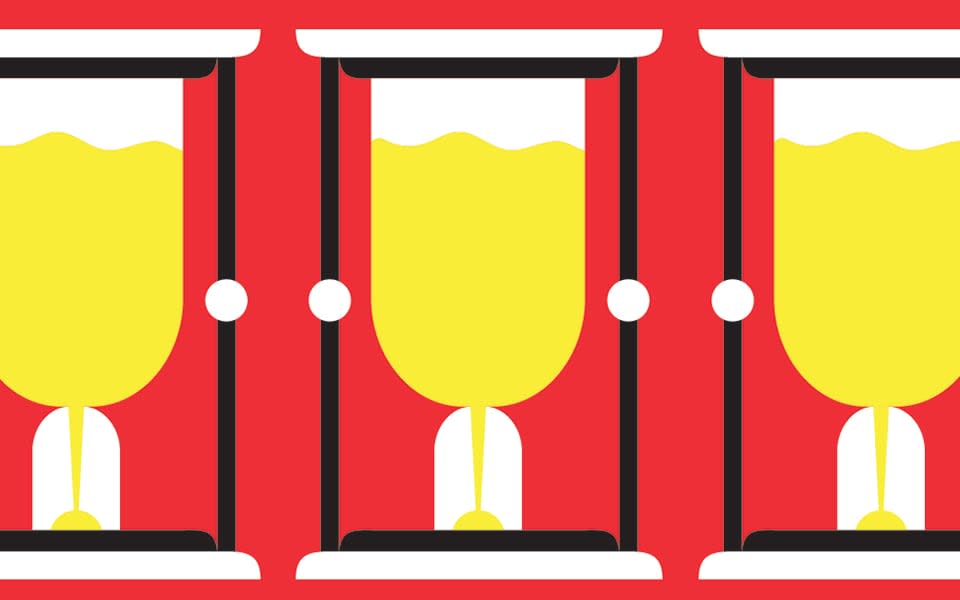House price boom could be derailed by 'perfect storm' of collapsed sales

The property market is being strangled by its own “mini-boom” as logistical delays mean buyers are increasingly pulling out of sales.
The summer surge in buyer demand combined with reduced processing capacity after lockdown means that lenders, local authorities, conveyancers and surveyors are overwhelmed. Sales are at serious risk of being dragged beyond the stamp duty and Help to Buy scheme deadlines at the end of March.
Andrew Boast of SAM Conveyancing, a panel of solicitors and surveyors, warned that local authority searches that would normally take one to three weeks now often take six weeks. Meanwhile, surveys that before the pandemic could be booked for the following working day now need to be secured up to four weeks in advance.
Legal & General Mortgage Club now estimates that the average sale takes 15 weeks from start to finish. As many as 200,000 buyers may miss the stamp duty holiday deadline as a result.
Andy Soloman, of Yomdel, a firm that tracks property market sentiment, said the delays mean: “There is a ticking time bomb of withdrawals that will affect the market going forwards.” Fast approaching deadlines mean the market faces a "perfect storm", he added.
Sales are increasingly falling through
The longer a transaction takes, the more likely it is to fall through, particularly given the pandemic's effect on job security and changing restrictions, said Mr Boast.
The number of collapsed sales is rising fast. In July, 17pc of agreed sales fell through, according to data from property website Rightmove. The number has been rising steadily. So far in October to date, the share has jumped seven percentage points to 24pc – effectively one in four sales.
This means that many of the sales that have been boosting house price indexes based on agreed prices or mortgage approval data, may simply never happen.
The number of failed sales is still marginally down on October 2019, when 25pc of agreed deals fell through, but the boom in demand as buyers rush to transact after lockdown and the stamp duty holiday makes it surprising that the numbers are comparable.
Sellers in particular are keen to press ahead with sales because they have agreed such high sale prices for their homes, said Mr Boast.
Buyers need to meet tight deadlines
But buyers need things to move quickly. Sam Richards, 27, put an offer of £358,000 in on a flat in east London on December 23 2019. After nine months of delays, he has finally pulled out.
First, the transaction was suspended by lockdown. Then when the market reopened, the purchase was held up by a discrepancy between the leasehold and the freehold plan. The seller booked a survey in July, but the council never updated their files.
“First the guy who could do it was away, then there was no answer for the whole of August, and September,” said Mr Richards, who asked to speak using a different name.
“I was the bottom rung of a nine person chain and someone was having a baby,” said Mr Richards. “I think the seller is considering legal action against the council.”
Mr Richards has now had an offer of £322,500 accepted on a two-bedroom flat in a different east London borough. Now the agent has told him the local authority search will take 55 days.
Mr Richards plans to go ahead because he expects the delays to only get worse ahead of the stamp duty deadline at the end of March.
If he transacts before the deadline, he will save more than £6,000. If he misses it, he plans to "negotiate the price down by the tax difference".

There will be a vacuum of buyers in April
Other buyers may not be able to transact at all. After the deadline for the stamp duty discount has passed, “there will be a large number of purchasers who will not continue with their transactions because they can’t afford to,” said Mr Boast.
Entry-level buyers face a double hit. The Help to Buy equity loan scheme also ends in March.
“Developers have a mad rush to get their stock sold before the funding is pulled,” said Mr Boast.
For the last three months, solicitors have been adding clauses into contracts for purchases on the Help to Buy scheme that caveat that the buyer is not liable to complete the transaction if it cannot be done in time to be eligible for the equity loan funding, he added.
Help to Buy’s replacement, which launches in April with a system of regional price caps and which will be open only to first-time buyers, means that nearly 40pc of the buyers who currently buy under the scheme will no longer be eligible, according to the Home Builders Federation, a trade association.
The change will hit the market harder because buyers are increasingly dependent on the scheme. Before the pandemic, 35pc to 45pc of new build sales were made using the equity loan scheme, according to HBF. Since lenders withdrew low deposit mortgages en masse, that share has jumped closer to 55pc.
Stagnation lies ahead
Restrictions in lending also mean the housing market now is more vulnerable to failed sales. Homemovers have overtaken first-time buyers as the most dominant buyer group, according to property website Zoopla.
Neal Hudson, of BuiltPlace housing analysts, said the shift means that more transactions involve buying chains, which are more exposed to delays.
After the rush before the tax deadline, analysts have predicted stagnation as the market grapples with rising unemployment. Hamptons International and Savills have both forecast zero house price growth in 2021. The Centre of Economics and Business Research has forecast a 13.8pc drop.

 Yahoo News
Yahoo News 
